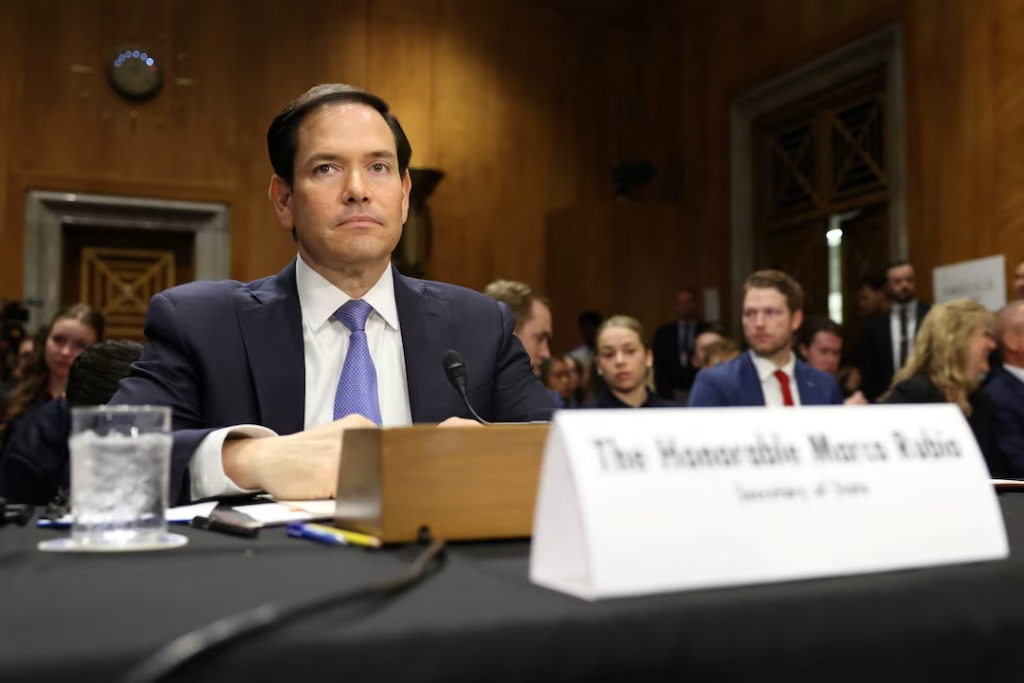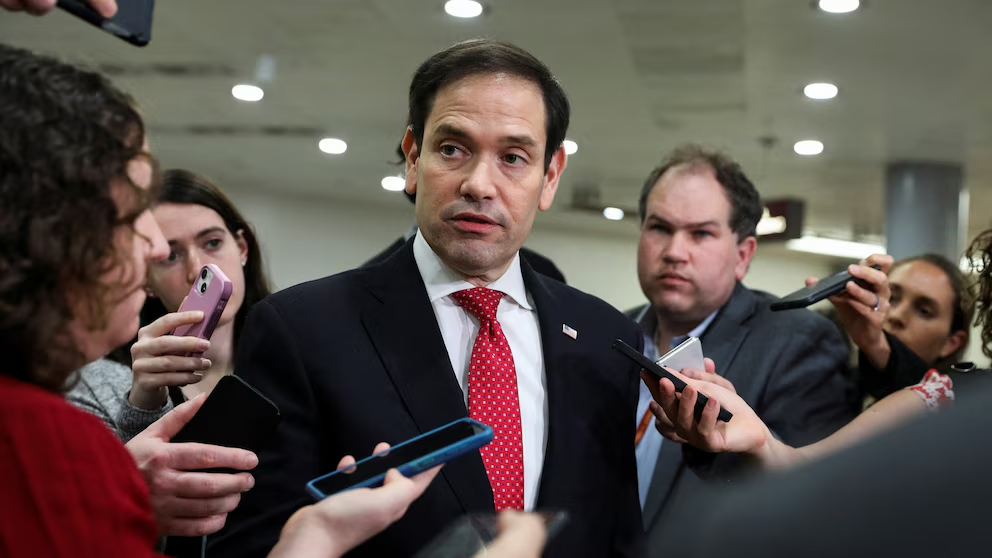U.S. Secretary of State Marco Rubio faced tough questions on Capitol Hill this week as he defended President Donald Trump’s sweeping cuts to foreign aid and diplomatic spending.
In his first testimony before Congress since being confirmed, Rubio appeared before the Senate Foreign Relations Committee to make the case for the administration’s controversial $28.5 billion budget request for the 2025–2026 fiscal year—a sharp reduction that reflects Trump’s “America First” approach to foreign policy.
Rubio, a former senator from Florida who was unanimously confirmed as Secretary of State in January, acknowledged the substantial shift in how U.S. foreign policy is being conducted.

“The State Department had to change,” Rubio said. “It was no longer at the center of American foreign policy—it had often been replaced by the National Security Council or other agencies.”
READ ALSO: UK Halts Trade Talks with Israel, Imposes New Sanctions Amid Escalating Gaza Conflict
While Rubio promised a more assertive U.S. foreign policy during his January confirmation hearing, some of his Democratic supporters have expressed regret over their votes, citing his perceived failure to stand up to Trump’s centralization of power. Since assuming office, Trump has significantly increased White House control over foreign affairs and federal spending—prompting concern even among seasoned lawmakers.

Rubio defended the administration’s decision to eliminate what he called “duplicative, wasteful, and ideologically driven programs,” arguing that the reduced budget would allow for more strategic, targeted diplomacy.
He emphasized a proposed $2.9 billion “America First Opportunity Fund,” aimed at replacing traditional foreign aid with faster, more responsive programs. The fund, Rubio explained, would enhance U.S. engagement with allies like India and Jordan, and help counter global influence from adversaries such as China.
Despite his longstanding support for foreign aid during his 14-year Senate career, Rubio now oversees a dramatic overhaul of the U.S. Agency for International Development (USAID), which is being folded into the State Department.

Previously responsible for around $40 billion in aid spending annually, USAID’s downsizing has raised concerns among lawmakers who fear that humanitarian efforts could suffer.
READ ALSO: IDF Eliminates Senior Hezbollah Commander in Southern Lebanon Strike (VIDEO)
During the hearing, senators pressed Rubio on several high-stakes issues, including the humanitarian crisis in Gaza, the administration’s Syria policy, Trump’s aggressive immigration measures, and efforts to end the war in Ukraine.

On Syria, Rubio warned that the country could be headed for another catastrophic civil war. He said the State Department would work with local officials in Turkey to assess needs for humanitarian assistance, noting that Syria’s transitional authority could be just “weeks” away from collapse.
Protesters briefly interrupted the hearing with chants of “Stop the genocide,” referencing the conflict in Gaza—part of a growing trend of public disruption at congressional hearings related to Middle East policy.
Senator Jeanne Shaheen (D-NH), the committee’s top Democrat, voiced frustration with the administration’s direction, particularly its global retreat from diplomatic leadership.

She pointed out that China is stepping into the vacuum left by the U.S., expanding its diplomatic footprint and increasing humanitarian aid where the U.S. has pulled back. “Beijing is making the case that they are a more reliable, supportive partner than the United States,” Shaheen warned.
Rubio, known for his tough stance on China, pushed back strongly. “The era of indulging the Chinese Communist Party as it abuses trade practices, steals our technology, and floods our nation with fentanyl is over,” he declared.
Despite some Democratic disillusionment, Rubio has become an indispensable figure in the Trump administration. In addition to serving as Secretary of State, he currently holds the roles of acting National Security Adviser, acting USAID Administrator, and even acting Archivist of the United States—a rare concentration of power not seen since the era of Henry Kissinger.

“When I have a problem, I call up Marco. He gets it solved,” President Trump recently said of Rubio, signaling his deep trust in the former senator.
Rubio, appearing unfazed by the mounting scrutiny, even joked about his growing list of responsibilities. “I’m pleased to be appearing on behalf of the National Archives today,” he quipped, drawing a rare moment of laughter from the committee room.
Following his testimony before the Senate Foreign Relations Committee, Rubio was scheduled to address the Senate Appropriations subcommittee later in the day and is set to testify before the House Foreign Affairs Committee on Wednesday.
Discover more from Scoop Hub
Subscribe to get the latest posts sent to your email.

